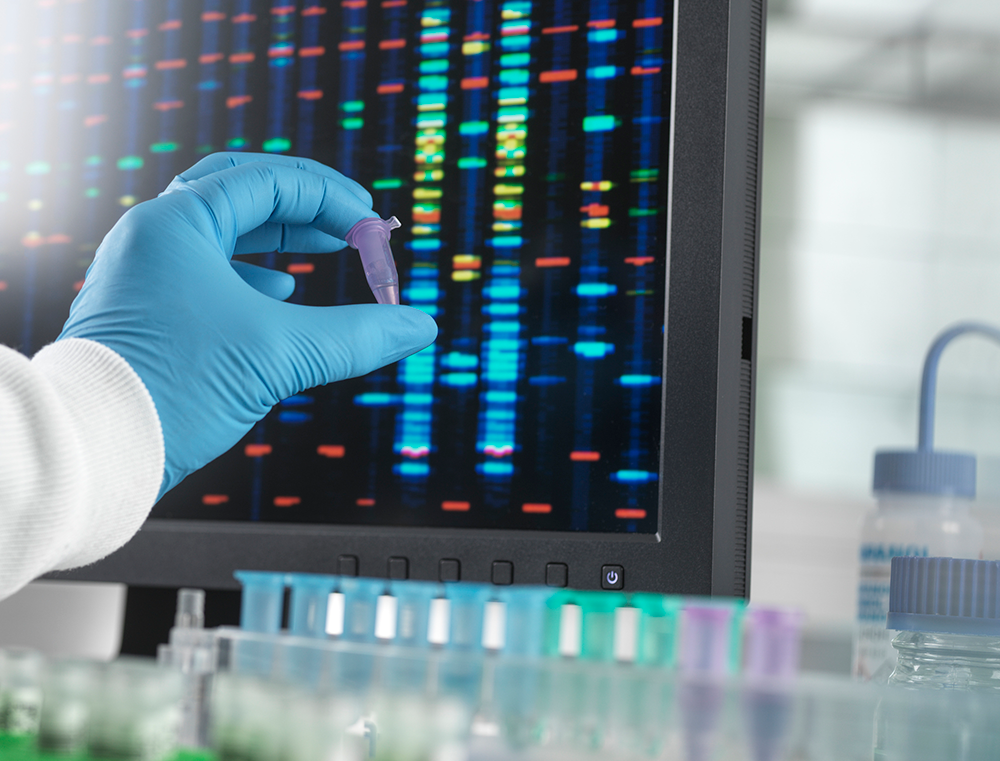{image_1}As of January 2019, it is estimated that there are 16.9 million cancer survivors in the United States. This represents approximately 5% of the population, according to the National Cancer Institute.
The moment a person receives a cancer diagnosis they are considered a cancer survivor for the rest of their life. For Michele Peukert, this moment came on April 16, 2019, when she was diagnosed with breast cancer. Although sad, scared and confused, she was determined to do everything she could to beat cancer.
Peukert first met with a breast surgeon. Although it was determined that she was a candidate for lumpectomy, she opted for the most aggressive option: a bi-lateral mastectomy. The tumor was confined to the breast and had not gone into the lymph nodes, so she had a successful surgery on May 1, 2019, with only three lymph nodes removed.
An avid runner, Peukert trained and competed alongside her husband, Chris, many years prior to her diagnosis. She was determined to stay active throughout her cancer treatment, something she believes helped her heal and recover more quickly. However, just like everyone's cancer journey, there were peaks and valleys.
"The drain plugs were the worst," she says. "But my recovery was extremely fast, which I attribute first and foremost to Jesus, who is my healer, and to my extreme physical activity in the years leading up to my surgery. I even did a very slow 5K with my drain plug still in place, just two weeks following my mastectomy."
{image_2}Although Peukert was technically in remission following her surgery, her breast surgeon informed her she would need chemotherapy treatments due to being categorized as high-risk for recurrence due to the genetic make-up of her tumor. This was difficult news to hear. “He wanted my first meeting with my oncologist to be positive, so my surgeon delivered the tough news about the treatment I would need.” She was then referred to breast cancer expert Dr. Eric Weinshel at Minnesota Oncology in Edina, Minnesota.
"The chemo was classified as risk-mitigating against recurrence," Peukert explains. Her oncologist was unsure if she'd be able to train through her treatments, but fortunately her strength paired with her drive allowed her to continue to run and even return to work earlier than expected.
"Being physically active was extremely important during my treatment," she says. "Along with knowing that God made me strong enough to endure everything."
Working with her team at Minnesota Oncology, she was able to use Paxman Cold Cap, a scalp cooling system used during her chemo treatments to preserve her hair. "I was able to keep a lot of my hair and maintain a sense of normal in regards to my appearance. I was able to look as good as I felt. I never purchased or wore a wig, which was extremely important to me. Now my hair is thicker and growing faster than I imagined, since Paxman saved my hair follicles."
{image_3}Her final chemo week started Oct. 6, 2019, with a 10-mile race where she came close to a personal record. "I didn’t realize I was that strong," she says. "I officially completed treatments and wanted my surgeon Dr. Michael Galle to remove the huge port as fast as he could the following week. Three weeks after I finished treatment, I ran 19.3 miles in two days for Disney’s Wine & Dine Challenge!"
Faith, along with mental and physical strength and the support of her husband and the team at Minnesota Oncology — whom she describes as phenomenal — helped Peukert to overcome any obstacle and achieve her goals.
"Having a team that cares and loves you is so important," she stresses. "I needed a doctor that not only cared about curing and killing the cancer and making sure it didn’t come back, but about me as a person. I have had that love my entire treatment. Every time I’d walk into the Edina Minnesota Oncology clinic, the team was amazing! Trisha was excellent with my port and fun to chat with. I loved my infusion nursing team Darlene, Heather, Brenda and everyone else. Emily would stop by and we’d talk Disney which would totally distract me. Even to this day, that chat with everyone during blood draws truly helps me."
Her advice to others facing a cancer diagnosis: "You will get through this. Try to maintain as many normal activities as possible, such as exercise, faith, hobbies, relationships, etc. Don’t hide away, but enjoy each day to the fullest, even during treatment."
Photos courtesy of Michele Peukert, @mndisgirl on Instagram.



